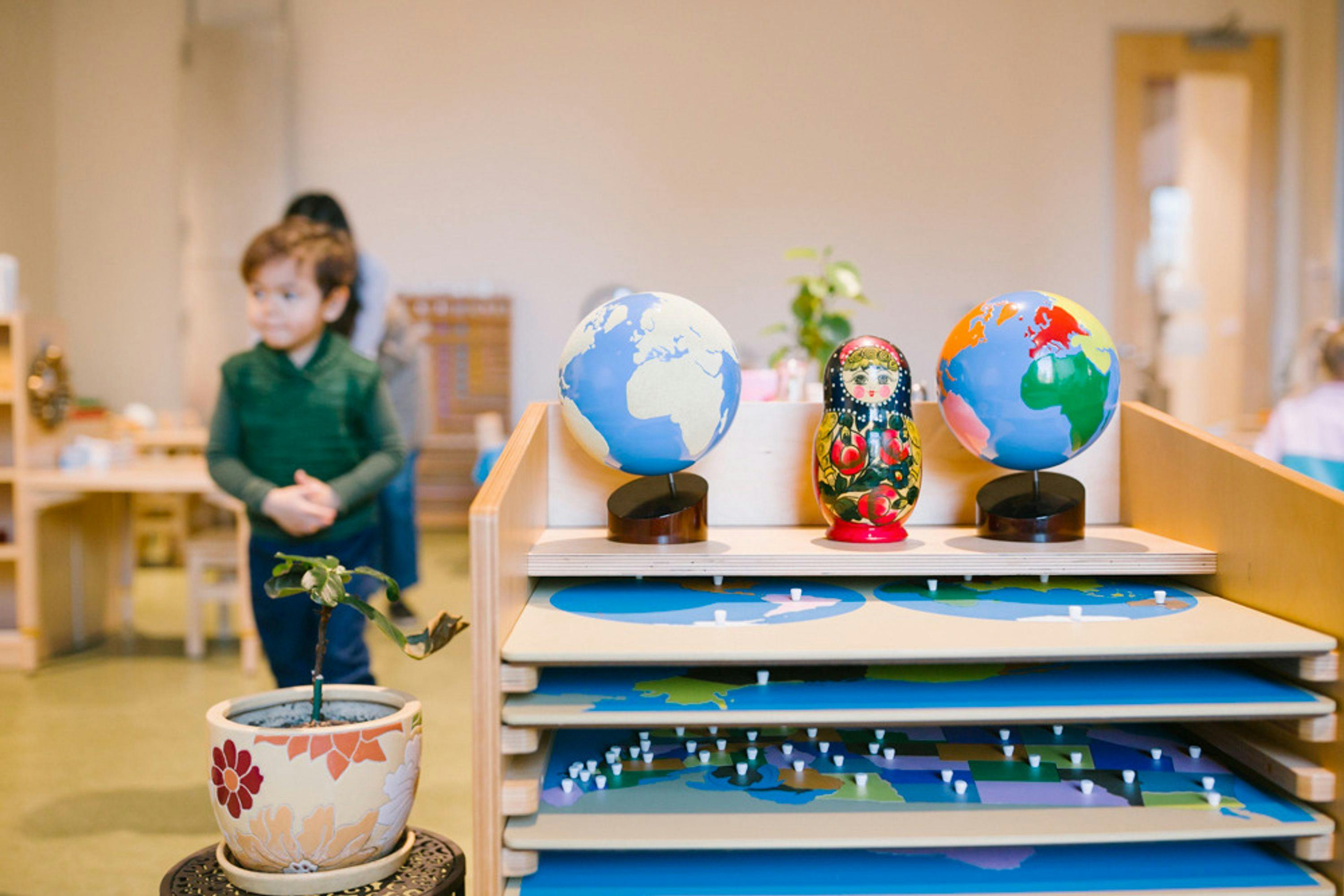What Makes a Montessori School Authentic – A Step-by-Step Checklist
Ever wondered how to tell if a school is offering an authentic Montessori education? Our handy parent checklist is designed to guide your search for the best Montessori school near you
Jenna Wawrzyniec
Content Specialist
Finding the right school or daycare for your child can feel like a monumental task. Even if you’ve narrowed down your search to one that offers the Montessori Method, how can you be certain that what they’re offering is authentic?
Despite the specificity of Dr. Maria Montessori’s education model, she was never able to trademark or copyright her method. This leaves free range for schools to market their programs as Montessori, creating a wide variance in implementation and misrepresentation of what a Montessori education entails.
This “buyer beware” can feel confusing, especially if you've already incorporated some Montessori practices around your home. If a “Montessori-inspired home” is okay, what's so bad about a “Montessori-inspired school?”
While there’s no standardized method of implementing Montessori in the home, there are program quality markers to uphold the effectiveness of a Montessori school and its educational outcomes for the child.
We’ve created a checklist of key markers to guide your observations. This list has been designed in order of how you might experience a school tour.
“A school’s commitment to Montessori pedagogy is most telling based on the accreditation of training for their teachers.”
The School
- The school’s overall aesthetic feels calm, structured and inviting.
- The school team speaks to the Montessori Method and how it aids in the development of the whole child, not just academics.
- The school incorporates nature, with opportunities like caring for plants and gardens.
- The staff embodies grace and courtesy, engaging with respect, patience and kindness to other adults and children.
- The school is accredited or pursuing accreditation. For example, Guidepost Montessori schools are accredited by or in accreditation candidacy with Cognia, American Montessori Society, Middle States, National Association of Education for the Young Children, and Western Association of Schools and Colleges.
- The teachers, called lead guides, are certified Montessori educators from a program accredited by the Montessori Accreditation Council for Teacher Education (MACTE).
- All Montessori teacher training centers that are accredited are accredited by MACTE. Many have other affiliations with Montessori organizations such as American Montessori Internationale (AMI) or American Montessori Society (AMS).
Here’s a tip from the Prepared Montessorian, our sister teaching site:
Accreditation of the school looks for effectiveness of operations. This is separate from accreditation of the teachers and their training. A school’s commitment to Montessori pedagogy is most telling based on the accreditation of training for their teachers.
The Classroom
- Children are grouped in three-year, mixed-age classrooms, not same-age: 3-6 for primary, 6-9 for lower elementary and 9-12 for upper elementary.
- For infants and toddlers, there are no “baby containers” and freedom of movement is emphasized with low shelves, movement areas and low furniture. The classroom appears structured and orderly.
- The furniture is designed to the children’s level with learning materials accessible.
- Learning spaces are flexible with small-group tables and work rugs instead of desks.
- The classroom functions as child-led, not teacher-led.
- Instead of an hourly schedule, the guide protects a long “work period,” where the children freely choose their own work. (The work period is at least two hours for toddlers and at least three hours for children ages 3 and up.)
- The guide can articulate the importance of the children’s work cycles with respect to skills like concentration, growth mindset, executive functioning, intrinsic motivation.
The Materials
- The classroom has the full scope and sequence of Montessori materials, not just some of the materials.
- The learning materials are high-quality and breakable, including wood, glass and metal as opposed to plastic. Additionally, there are no battery-operated toys.
- Exploration of art and music is readily accessible.
- The guide can explain the importance of “control of error.”
- The guide can explain the progression of the Montessori materials.
- The guide can explain Montessori’s emphasis on “concrete before abstract.”
- The guide can discuss the role of creativity in the classroom, and how it correlates to Montessori’s emphasis on giving children real-world experience.
- The guide can discuss what “work” and “play” means in a Montessori context, and how they are one and the same.
The Children
- Children are free to move as part of their learning, not only during recess.
- The guide can explain the Montessori framework of “freedom within limits,” and how this differs from free-range.
- The children are clearly empowered to care for themselves, their peers, and the classroom environment.
- Discipline is not treated as punitive but handled with natural and logical consequences.
- Emphasis is placed on modeling socially desirable behaviors with “grace and courtesy.”
- Children are supported in their academic, social, and emotional development on the basis of nurturing intrinsic motivation.
- There are no reward charts, bribery, punishments, or over-praise. Children learn to evaluate their own accomplishments, rather than depend on someone else’s approval of their accomplishments.
- The children are not administered traditional worksheets/quizzes/tests. Instead, assessment is built-in to their ongoing lessons and through the guide’s individualized, daily observation of the child’s work.
If you have found a school or daycare that checks these boxes, chances are the staff are deeply committed to providing an authentic Montessori education.
Did you find this checklist helpful? Please feel free to share with your networks!
Jenna Wawrzyniec
Jenna is a trained journalist and writer whose parenting journey transformed after implementing Montessori at home with her three children. She is a passionate advocate for bridging Montessori to the mainstream as a means to build community, empower parent-child relationships, and honor learning as the lifelong journey that it is.
Sign up for our newsletter
Get started with our community today! Sign up for resources.
